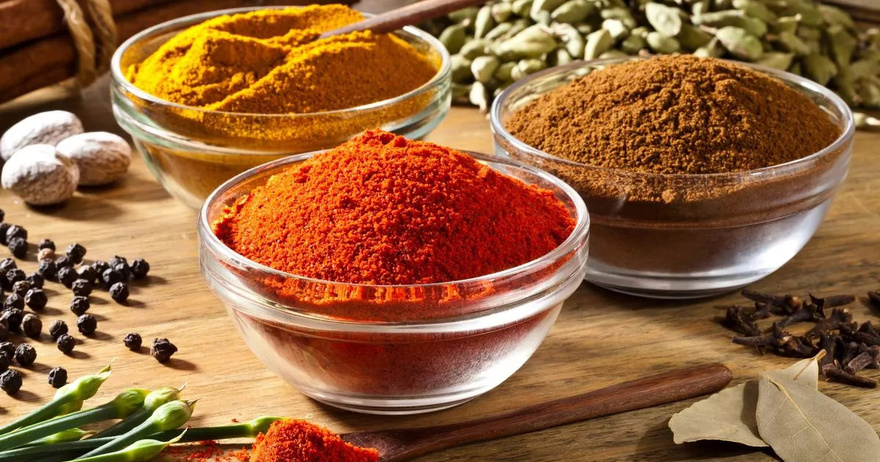Research has revealed that adding a spoonful of a common kitchen spice to your daily meals could have significant health benefits. If you’re looking to reduce your blood sugar, blood pressure and cholesterol levels, cumin is the spice to sprinkle on your food.
Not only does it aid digestion and fend off food-borne infections, but it’s also a rich source of iron. Beyond its triple benefits of lowering blood sugar, blood pressure, and cholesterol, it could also help you shed unwanted weight.
Plus, this superfood spice is packed with flavonoids – antioxidants that neutralise free radicals and prevent cell damage, reducing your risk of chronic diseases like heart disease and cancer.
What is cumin?
It’s a spice derived from the seeds of the cuminum cyminum plant and is a staple in many recipes, particularly in Mediterranean and Southwest Asian cuisines where it originates.
This spice lends a unique flavour to dishes like chilli, tamales, and various Indian curries, often described as earthy, nutty, spicy, and warm. Cumin also has a rich history in traditional medicine, reports Surrey Live.
Can cumin lower blood glucose
It has shown potential in aiding diabetes treatment through some of its components. In one clinical study, participants who took a concentrated cumin supplement saw better early signs of diabetes than those who received a placebo, particularly among overweight individuals.
Studies suggest that cumin could be a secret weapon for managing blood sugar levels in type 2 diabetes patients. One study found that diabetic rats fed cumin powder over eight weeks saw significant health improvements, including better body weight, lower blood sugar, and decreased blood urea levels.
Cumin’s ability to combat the long-term effects of diabetes is also noteworthy, as it helps reduce the formation of harmful advanced glycation end products (AGE) that can damage cells – with lab studies showing cumin’s components effectively lowering AGEs. While these findings are promising, the exact compounds in cumin responsible for these benefits and the precise amounts needed remain unclear.
Cumin doesn’t just help with blood sugar; it’s also a cholesterol buster. Clinical trials have demonstrated cumin’s positive impact on cholesterol levels.
In one study, taking 75 mg of cumin twice daily for eight weeks led to a drop in unhealthy blood triglycerides. Another study highlighted that patients consuming cumin extract for six weeks achieved nearly a 10% decrease in oxidized “bad” LDL cholesterol.
The potential health perks of cumin have come under the spotlight as a third study involving 88 women unveiled that consuming 3 grams of cumin mixed with yoghurt twice daily for three months could boost “good” HDL cholesterol levels. But, while cumin used as a flavour booster in food seems promising, its impact is less clear versus the more defined benefits shown by supplements in separate research, with one study indicating no significant changes to blood cholesterol from cumin supplements alone.
Can cumin lower blood pressure
Research indicates cumin’s bundle of benefits doesn’t stop at cholesterol and blood sugar; it also contains properties that may help slice through high blood pressure figures. Thanks to its antioxidant and anti-inflammatory might, cumin amplifies nitric oxide in the bloodstream, which can ease tense blood vessels and potentially lower pressure stats.
The presence of flavonoids in cumin can help ward off cellular harm and conditions like hypertension. Plus, potassium-packed cumin can aid the body in flushing out sodium, a move that could regulate blood pressure.
How much cumin is safe
Regarding how much cumin is safe, these are some guidelines to follow:
Cumin powder: The typical dose is 1.5–3 grams per day, taken orally for up to six months.
Cumin churna: The recommended dose is ½–1 teaspoon twice per day.
Cumin oil: The recommended dose is 1–2 drops twice per day.
Cumin herbal supplements: The recommended dose is 300–600 mg per day.
How to use cumin
Cumin is a flavorful spice that can be used in many dishes, including rice, soups, stews, curries, chillis, salads and roasted vegetables.
Toasting whole cumin seeds in a nonstick pan brings out their unique flavor.
Dry-frying cumin before grinding it softens its spicy punch and brings out its flavour.
Be conservative when cooking with cumin because its flavour can easily overtake a dish.
Side effects of cumin:
Cumin is generally considered safe to consume in foods, but there are some potential risks to be aware of:
Allergies: Some people may be allergic to cumin.
Bleeding disorders: Cumin may slow blood clotting, which could worsen bleeding disorders.
Blood sugar: Cumin may lower blood sugar levels, which could be dangerous for people with diabetes or those taking diabetes medications.
Surgery: Cumin may interfere with blood sugar control and make bleeding worse during and after surgery. You should stop using cumin at least two weeks before a scheduled surgery.
Pregnancy: Some cultures have used cumin to trigger miscarriage, so pregnant or trying-to-become-pregnant women should be cautious.
Testosterone levels: Cumin may suppress testosterone levels, which could make men less fertile.
Other side effects: Cumin may cause an upset stomach, heartburn, belching, bloating, gas, nausea, dizziness, and stomach pain.
Liver damage: The volatile oil in cumin seeds can damage the liver and/or kidneys.
Narcotic effect: Cumin seeds have narcotic properties, which can cause mental clouding and drowsiness.
While cumin may have some health benefits, it’s not a magic solution. The best ways to maintain good health and lower your blood pressure, sugar, and cholesterol levels include regular exercise, a balanced diet, plenty of sleep, avoiding excessive processed, fatty foods, drinking water, limiting alcohol, and giving up smoking.
Always consult your doctor before adding cumin to your diet, particularly if you’re on certain medications or undergoing treatment for a medical condition. Before starting any new herbal supplement routine, it’s crucial to discuss with your doctor and strictly follow the dosage instructions provided on any products you buy.
Wendy’s Reacts to Backlash Over Joke About Leaving Katy Perry in Space: ‘Always Bring a Little Spice’
Michael Bublé Is Living The Good Life With His Family In A Multi-Million Dollar Mansion In His Hometown.
Dolly Parton’s best duet yet: ‘There Was Jesus’
Grooving Groom Daniel Lewis’s Epic Dance Entrance With His Boys Makes Wedding Goes Viral.






























